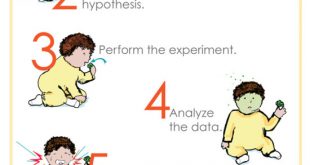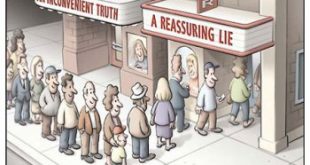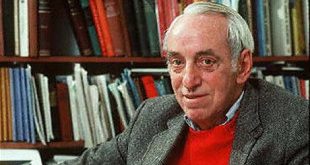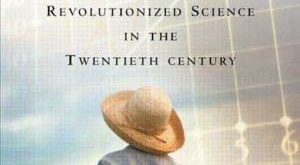Why economists don’t know what every baby knows about scientific methods Limiting model assumptions in economic science always have to be closely examined since if we are going to be able to show that the mechanisms or causes that we isolate and handle in our models are stable in the sense that they do not change when we “export” them to our “target systems”, we have to be able to show that they do not only hold under ceteris paribus conditions and a...
Read More »Die Mauer ist weg
Die Mauer ist weg [embedded content] Anything you can say about the Berlin Wall is — to paraphrase one of my intellectual heroes — at the same time both too much and not enough.
Read More »Proving 0 = 1
Proving 0 = 1 [embedded content]
Read More »True face of Marine Le Pen
True face of Marine Le Pen [embedded content]
Read More »Dick Harrison — rätt för en gångs skull
Dick Harrison — rätt för en gångs skull Dick Harrison är en tyckmyckentrutad, pompös,och mediekåt professorskollega för vilken jag har hyser en nästintill obefintlig uppskattning. Men här — i Eric Schüldts fina SVT programserie Idévärlden — har han helt rätt i sin beskrivning av dagens anti-bildningselände i svensk universitetsvärld. Bra rutet Dick!
Read More »Alternative facts — the latest Newspeak invention
Alternative facts — the latest Newspeak invention The US is today run by a president that thinks he can get away with never ending lies by simply calling them ” alternative facts.” That’s of course nothing but Orwellian Newspeak — and George Orwell himself described the dangers of this postmodern mumbo jumbo truth-relativism already seventy-five years ago: I know it is the fashion to say that most of recorded history is lies anyway. I am willing to believe...
Read More »RBC models — nonsense on stilts
RBC models — nonsense on stilts They try to explain business cycles solely as problems of information, such as asymmetries and imperfections in the information agents have. Those assumptions are just as arbitrary as the institutional rigidities and inertia they find objectionable in other theories of business fluctuations … I try to point out how incapable the new equilibrium business cycles models are of explaining the most obvious observed facts of...
Read More »Krugman and Stiglitz — nothing but neoliberal alibis
Krugman and Stiglitz — nothing but neoliberal alibis Mirowski’s concern to disabuse his readers of the notion that the wing of neoliberal doctrine disseminated by neoclassical economists could ever be reformed produces some of the best sections of the book. His portrait of an economics profession in haggard disarray in the aftermath of the crisis is both comic and tragic … Incoherence notwithstanding, however, little in the discipline has changed in the...
Read More »Neoliberalism — a threat to democracy
Neoliberalism — a threat to democracy [embedded content] Perhaps the most dangerous impact of neoliberalism is not the economic crises it has caused, but the political crisis. As the domain of the state is reduced, our ability to change the course of our lives through voting also contracts. Instead, neoliberal theory asserts, people can exercise choice through spending. But some have more to spend than others: in the great consumer or shareholder...
Read More »On the non-applicability of statistical theory
On the non-applicability of statistical theory Eminent statistician David Salsburg is rightfully very critical of the way social scientists — including economists and econometricians — uncritically and without arguments have come to simply assume that one can apply probability distributions from statistical theory on their own area of research: We assume there is an abstract space of elementary things called ‘events’ … If a measure on the abstract space of...
Read More » Lars P. Syll
Lars P. Syll








